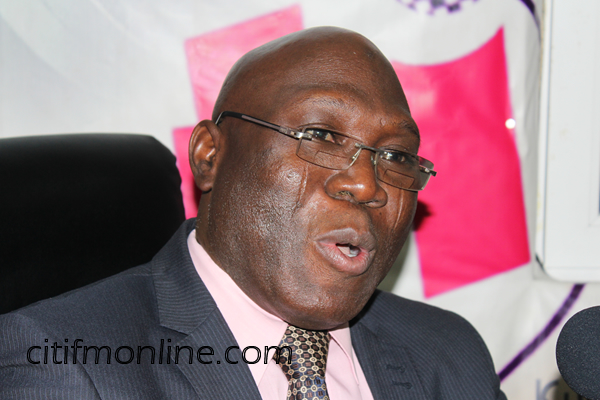The Bureau of National Investigations (BNI) has begun investigations into allegations that some staff of the Ministry of Roads and Highways own companies are directly involved in the bidding and execution of contracts awarded by the ministry.
The sector minister, Alhaji Inusah Fuseini, who revealed this at the management meeting of the Department of Urban Roads in Bolgatanga, urged such employees to resign and ply their trade in the private sector.
“This is very unethical and a direct conflict of duty. The two road contractors associations have raised this issue during its interactions with the ministry and have provided the BNI with the names of the companies of such staff,” he said.
“When the evidence is formally received, I intend to tackle the issues with the officers involved and ensure the cessation of the practice,” he told the gathering of the regional managers of the department.
The meeting was held to review the department’s achievements and challenges and to chart the way forward.
Road variations and cost
The minister did not mince words about the variations done to projects, some of which go as high as 45 per cent.
“The government of Ghana’s funding for road projects continues to be limited and inadequate to cope with the demand from the communities. The numerous variation orders associated with your projects have resulted in huge cost overruns and have serious implications for the already overloaded budgets of the Road and Consolidated Funds,” he said.
A road whose variations easily come to mind is the Achimota-Ofankor one. The project, which was estimated to cost GH¢40 million initially, saw the cost increased to GH¢128 million due to a change in the scope of work.
The minister, therefore, urged the engineers to improve their design and estimating capacities to ensure value for money in all their projects.
“You should think through your projects from concept to execution so as to reduce the negative aspects of cost overruns. Your road portfolio should contain projects that can be adequately supervised over the period for effective results,” he added.
Acknowledging the huge responsibility on the shoulders of the regional offices and challenges, including weak human capacity, unavailability of required logistics and delay in payment which contribute to the deterioration of roads, the minister said the ministry would support the regional offices to find solutions to the problems.
Among the solutions he prescribed was the allocation of assets, including vehicles, to the regional offices and the metropolitan, municipal and district assemblies (MMDAs).
Additionally, he said the ministry had employed a consultant to optimise the country’s road classification system and provide a clear definition for agencies and MMDAs in the management of the entire road network within the decentralised framework.
Deputy Upper East Minister
The Deputy Upper East Regional Minister, Mr Daniel A. Syme, observed that the region was yet to have its fair share of good roads.
According to him, most of the roads in the district capitals are not connected to the regional capital, a situation that impedes commercial activities.
“There are some areas in Bolgatanga that when it rains there is flooding and deaths,” he said.


